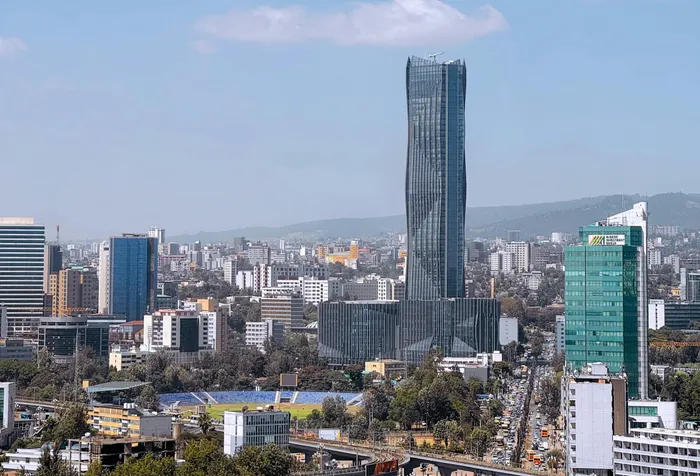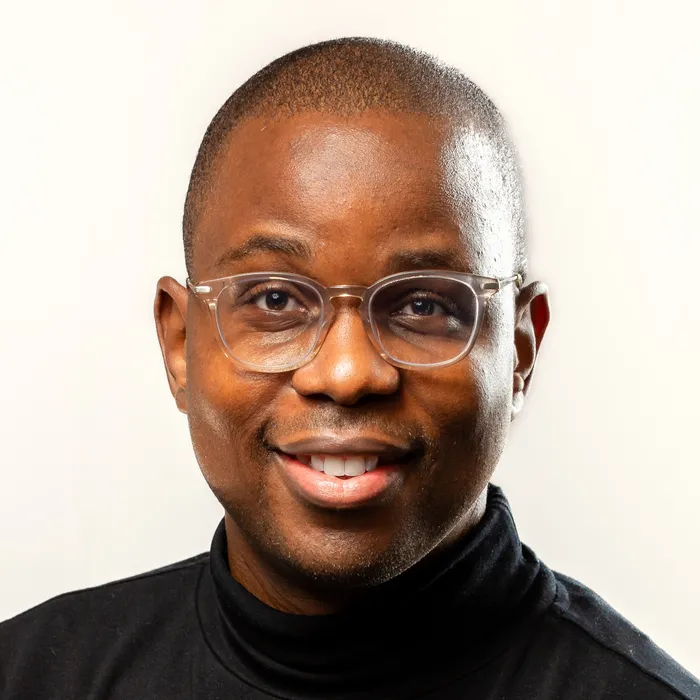Why this fintech founder thinks 'patient capital' is killing African investment
TECH TIDES AFRICA

Ethiopia has newly liberalised its financial sector.
Image: Fanuel Leul on Unsplash
Last month, news broke about Kenya's KCB Group being on track to become the first foreign bank to secure entry into Ethiopia's newly liberalised financial sector. This represents a historic shift ending five decades of state control dating back to the 1974 Derg nationalisation.
It's the kind of development that Bernard Laurendeau spent years laying critical groundwork for during his time embedded within Ethiopia's government machinery, though not all his efforts bore fruit.
Government whispering
After 15 years advising Fortune 50 clients (from Google and Cisco to UAE's Ministry of Finance), Laurendeau returned to Ethiopia in 2019 to serve as senior advisor to the jobs creation commission under the Prime Minister's office. The work wasn't always successful. For instance, a startup act he helped draft "never saw the light of day," he admits, though he declines to elaborate on why it stalled.
What did emerge was his theory of "Gov-preneurship": the idea that Diaspora professionals should embed with African governments to transfer knowledge and build institutional capacity. "A lot of the leaders in Africa turned out to be very authentic, very genuine about what they're trying to do for their country, but they're lonely," he explained during a recent African Tech Roundup Podcast conversation.
The timing proved fortuitous, if not entirely by design. Laurendeau had spent years watching Japanese companies struggle to decode African markets, relying on outdated World Bank data and Geneva-sourced reports. When Safaricom secured its Ethiopian telecoms licence in 2021, he found himself simultaneously building a fintech company and helping incumbent banks navigate potential mobile money disruption. This dual role raised eyebrows.
"People think there was some conflict," he reflects, "but financial services sovereignty was always the goal. We needed to ensure technology transfer, knowledge transfer, and that we're really building institutions."
Whether by careful positioning or fortunate circumstances, the approach appears to have yielded results. Laurendeau revealed that Arifpay is now poised to issue dividends (a rare milestone for African fintech) on the back of securing partnerships with Safaricom's M-Pesa and, more recently, local heavyweight Nib International Bank.
Rather than the mobile money whitewash many feared ahead of Safaricom’s (Vodafone) market entry, Ethiopia's payment landscape now features multiple players competing on service rather than regulatory capture.
Capital myths
But Laurendeau's most contrarian insight targets the "patient capital" narrative that dominates African investment discourse. Having relocated to Tokyo specifically to bring African market intelligence to Japanese boardrooms, he's witnessed firsthand how this positioning backfires.
"Investors don't want to think long term," he proffers bluntly. "They can either invest on the stock market, whether in Tokyo or the US, and they have options. So if you tell them, 'Oh, you need to think long term,' that's not the right type of answer."
Instead, his firm delivers what he calls "execution horsepower": the project management, policy design, and actionable expert insight that enables rapid decision-making. It's management consulting adapted for emerging markets, where the gap isn't capital but institutional capacity.
Unglamourous wins
This philosophy extends to his concept of "Gov-preneurship": embedding with governments to build the unglamourous infrastructure that makes everything else possible. Think core banking systems, Bloomberg terminals for local stock markets and payment rails that actually work. The unglamorous foundations that Silicon Valley-inspired entrepreneurs skip in their rush toward "fancy AI machine learning."
"We cannot always do the fancy stuff," Laurendeau argues. "We need to do the boring stuff as well—building hospitals, infrastructure, the boring aspect of technology."
It's a message that hasn't always landed well with African audiences expecting more inspirational rhetoric. But recent developments suggest the approach has merit. Ethiopia's banking liberalisation required years of policy groundwork, regulatory design, and stakeholder alignment; apparently, the kind of institutional building that Gov-preneurship enables.
Quality standards
The irony isn't lost on Laurendeau that he's making this argument from Tokyo, having positioned himself in the backyard of companies with 30-year track records of systematic African engagement through Tokyo International Conference on African Development (TICAD) summits.
Japanese organisations bring uncompromising quality standards to everything they touch ("there's no such thing as downgrading") while creating superior knowledge transfer opportunities for African partners willing to meet those standards.
"Sometimes we see all these new terms (crypto, AI, even entrepreneurship became very trendy)," he observes. "But innovation can make you lazy because it's basically pushing you to not do the mundane."
Sovereignty test
As KCB prepares its Ethiopian expansion and other regional banks eye similar opportunities, Laurendeau's thesis faces its ultimate test. Can African markets compete on execution quality rather than narrative sympathy? Can governments become genuine partners rather than supplicants seeking patient capital?
His own trajectory offers a template for this transition. From mechanical and aerospace engineering at ENSTA France and Georgia Tech to consulting at BNP Paribas, from Silicon Valley big data analytics to Ethiopian policy design, Laurendeau has systematically positioned himself where technical expertise meets institutional need. The approach landed him everything from BBC World Service hosting gigs to Fortune 50 consulting mandates.
By that token, it does appear that strategic positioning beats geographic sentiment. The bet now is whether an entire continent can make a similar transition at scale.

Andile Masuku is Co-founder and Executive Producer at African Tech Roundup.
Image: Supplied
Andile Masuku is Co-founder and Executive Producer at African Tech Roundup. Connect and engage with Andile on X (@MasukuAndile) and via LinkedIn.
*** The views expressed here do not necessarily represent those of Independent Media or IOL.
BUSINESS REPORT